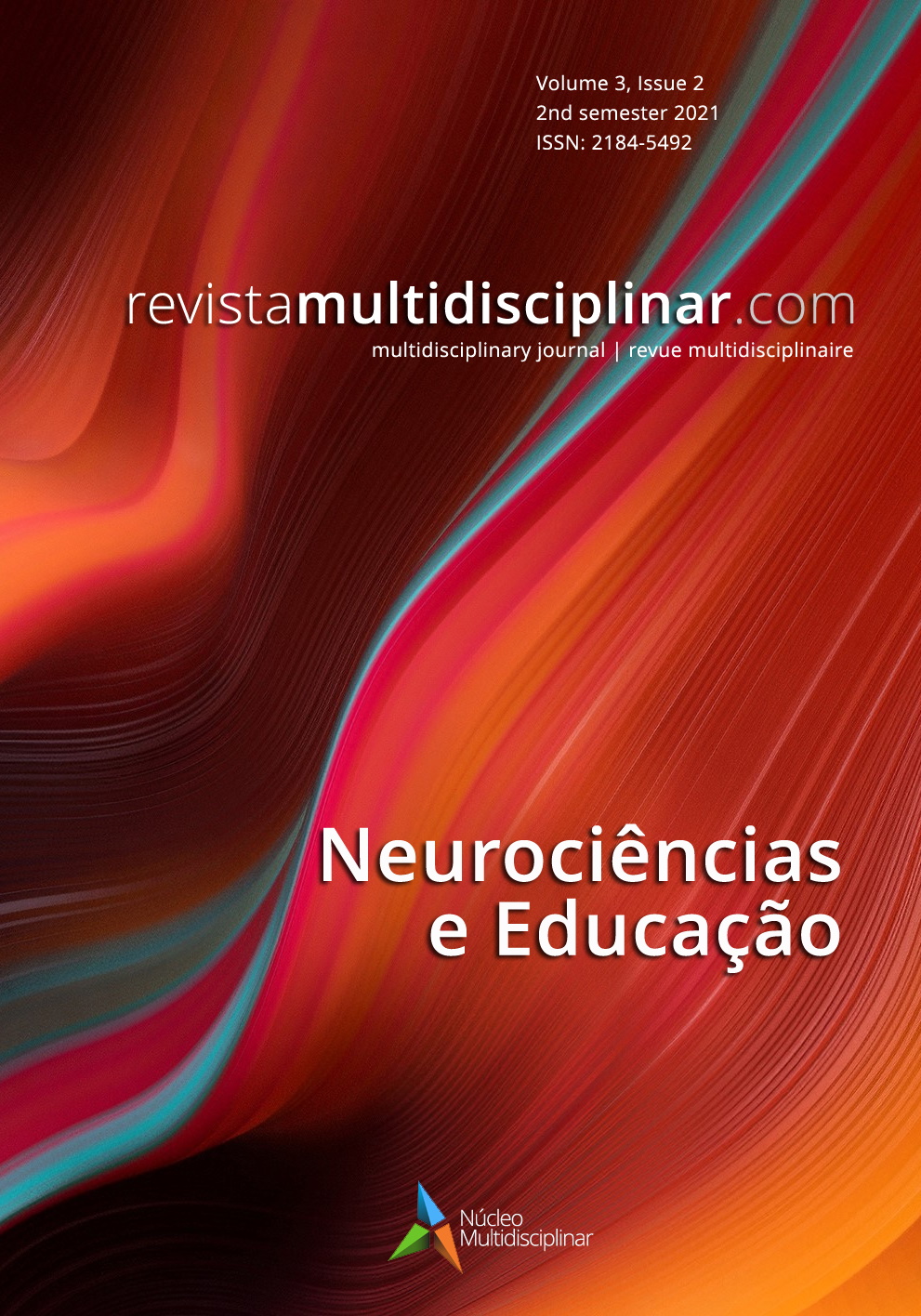The student's profile as a starting point in defining individual enabling strategies of academic performance
DOI:
https://doi.org/10.23882/NE2147Keywords:
academic performance, neuroeducation, pedagogical strategies, self-regulationAbstract
Neuroeducation came to integrate the advances recorded in the areas of neuroscience in the teaching and learning processes. These processes, by enabling the mapping of brain circuits, enhance the individual's knowledge and allow the improvement of the functional structures that limit learning. The main goal of Neuroeducation is then focused on optimizing the performance of each individual, privileging their uniqueness, through self-regulation and the enhancement of executive capacities. In this context, the starting point should be the development of the student's profile. In addition to signaling the general academic, emotional and motivational level of the student, allows to create an information matrix, to structure the activities and strategies to be developed supporting an individualized pedagogical work. This resource allows students to become agents of their learning, self-searching at each moment, where they are regarding their final objectives, self-regulating their performance and adapting to the challenges they will face.
References
Akademia. (2020). Soluções educativas para crianças e jovens. Retrieved from http://www.akademia.pt/
Bacon, F. (1903) The Essaies of Sr. Francis Bacon ... His Religious Meditations. Places of Perswasion and Disswasion. Seene and Allowed. Volume 2 de The Bibliographer. H. Hooper (edits.), New York
Byrnes, J. P. (2001). Minds, Brains, and Learning: Understanding the Psychological and Educational Relevance of Neuroscientific Research. Guilford books New York
Dias, P. D., & Veiga Simão, A. M. (2007). O conhecimento estratégico e a auto-regulação do aprendente. In A. M. Veiga Simão, A. Lopes da Silva, & I. Sá (Orgs.). Auto-regulação da aprendizagem (pp.93-130). Portugal: EDUCA
Marques, A. C. (2014, Sept 25). Eduardo Sá: "Os bons filhos são aqueles que nos trazem problemas". Observador. Retrieved from https://observador.pt/2014/09/25/eduardo-sa-os-bons-filhos-sao-aqueles-que-nos-trazem-problemas/
OECD. (2017). Education at a Glance 2017: OECD Indicators. OECD Publishing, Paris.
Ortiz T., & Saldanha, A. (2017). Guia de Intervenção em Neuroeducação. Coisas de Ler, Lisboa
Rato, J., & Caldas, A. C. (2017). Quando o cérebro do seu filho vai à escola : boas práticas para melhor a aprendizagem. Verso da Kapa, Lisboa
Willis, J. (2017). Why teacher education should include neuroscience. Retrieved from https://www.teachthought.com/pedagogy/why-teacher-education-should-include-neuroscience/
Downloads
Published
How to Cite
Issue
Section
License
Copyright (c) 2021 Ana Cristina Baptista

This work is licensed under a Creative Commons Attribution-NonCommercial 4.0 International License.









